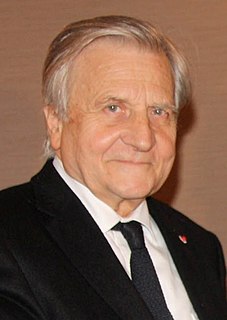A Quote by Ian Bremmer
International institutions like the Security Council, the General Assembly, the G20, the BRICs, the IMF, etc., continue to be little more than an extension of the (increasingly conflicting) values and interests of member states.
Related Quotes
I have often said that we have two UNs; the UN that is a Secretariat, that implements the mandates handed over to it by the General Assembly and the Security Council, and the UN that is the member states who sit in the Council, take the decisions, hand over the mandates, or take decisions in the General Assembly.
Over the longer term, the institutions and powers of the EU will continue to expand and certain policymaking powers, heretofore vested in the member states, will be delegated or transferred to, or pooled and shared with EU institutions. As a result, the sovereignty of the member states will increasingly be eroded.
Now we characterise Russian-Chinese relations as a strategic partnership, even a special strategic partnership. We have never had such a level of trust with China before. China is our major trade and economic partner among foreign states. We implement joint multi-billion projects. We cooperate not only within the UN Security Council, which is logical, as both China and Russia are permanent members of the UN Security Council, but also within such regional organisations as the Shanghai Cooperation Organisation, BRICS, etc.
Parliament is not a congress of ambassadors from different and hostile interests; which interests each must maintain, as an agent and advocate, against other agents and advocates; but parliament is a deliberative assembly of one nation, with one interest, that of the whole; where, not local purposes, not local prejudices ought to guide, but the general good, resulting from the general reason of the whole. You choose a member indeed; but when you have chosen him, he is not a member of Bristol, but he is a member of parliament.
The IMF is a more complicated issue. I think there is a broad sentiment among both the left and the right that the IMF may be doing more harm than good. On the right, there's the view that it represents a form of corporate welfare that is counter to the IMF's own ideology of markets. But anybody who has watched government from the inside recognizes that governments need institutions, need ways to respond to crises. If the IMF weren't there, it would probably be reinvented. So the issue is fundamentally reform.





































